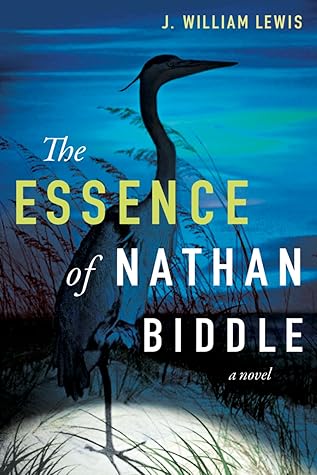More on this book
Community
Kindle Notes & Highlights
The fret I called the “willy-nilly problem” was probably in my mind a long time before I got it in focus, which didn’t happen until about a year after Nathan’s death. I’m a fretter. I’ll get something in my mind and it won’t go away.
Brooding is probably what I do best.
The problem of meaning is strange and embarrassing. It is patently absurd not to know why or how you exist. You would think that the reason for existence would be one of those obvious things like why you breathe. It is bizarre that a person exists for years before ever even wondering why. Then it seems sort of late when you finally focus on the question, and it seems silly even to ask it. But I didn’t like that answer because, in the end, don’t you have to ask the question?
existentialism doesn’t give answers; it just gives a person a theory for superimposing meaning on his existence.
It isn’t philosophy unless it’s written in the most vague, hazy, and abstruse language possible. After reading an explanation of the meaning of a philosophical oeuvre I had struggled with, my usual thought was, If that’s what the guy meant, why didn’t he just say it? Apparently it’s not philosophy without the verbal haze.
The reason for the lack of common dialogue isn’t that the answers are plain or certain. If people don’t talk about meaning, it’s because they don’t know what to say. People don’t talk about why they exist because, by the time the question comes into their minds, they know there’s no answer. Or perhaps they just decide that the question is irrelevant. Either way, it’s sort of depressing.
Nietzsche didn’t know how to create life but he seemed to want to define what it should be and how it should behave. That notion bothered me. If you start with the premise that no human being has ever produced a living thing and no one has any inkling of how to do it, it seems absurd to extrapolate grandly from a blank slate.
for some reason that bothered me. Maybe what bothered me was the thought that Nietzsche was supposed to be a genius and his poem was supposed to be extraordinary; but I didn’t appreciate either the content of the poem or the poetics. I wondered if there was something wrong with me.
It’s an axiom of inverse proportionality called the Principle of Quantum Pedagogy. The axiom is stated thus: The quantum of pedagogy provided is always inversely proportional
to the quantum of pedagogy needed.
Sisyphus is a Biddlesque character. Maligned. Put upon. Misunderstood. Noble. Mindlessly stuck.”
Get with the program and stay with the program. Maybe I should have gone to practice and maybe I ought to work on class assignments, but sometimes I think, “Aw, what the heck,” and I just do something else that’s more interesting. Everybody seems to know what I ought to do and it usually has something to
do with a program. I used to enjoy running, but I was never all that interested in the program.
One of the things I was struggling with was why everything has to ...
This highlight has been truncated due to consecutive passage length restrictions.
It isn’t a commitment if you’re dragged into it, is it? Or is that the point?
Darwin’s work is about adaptation,” I said, “not evolution of species. Darwin proved beyond any doubt that species adapt (change color and other features); but what he didn’t prove is that species either evolve or devolve from one kind of creature to another.
“Well, I think I’m an existentialist. I think everybody is, whether or not the terminology is used.” “Which means you stay with the program and create your essence?” “In practical terms, it means that the game is one of self-discovery. You actuate your potentialities by striving.”
I think that we are here for a purpose that unfortunately remains shrouded, and I think God has expectations of us that he reveals to us in his time and only if we listen. For some reason, the hard part seems to be learning how to listen. I think the thing you need to do is to listen to what he’s trying to tell you.”
Maybe the really beautiful things are like that: little glowing sparks in the mundane darkness of everyday existence.
I was troubled and uncomfortable, maybe because a fictitious persona is a spirit-breaking load that gets heavier by the mile. It’s very hard to be a phantom in a world of real people.
“Plants thrive after pruning. And crops grow best in manure. Don’t dismiss calamity until you can look over your shoulder and see what it has produced.”
yourself.
“People are attracted to one another,” Dr. Gross interjected, “because of perceptions at the time: special gifts, perceived benefits, the satisfaction of needs in the association. In that sense, we are all meeting the needs or failing to meet the needs of others. When needs cease to be met as expected, the attractions begin to disappear, and repulsions replace them. If that’s being used by someone, then we’re all tools in one way or another to those in our milieu.”
It was calamity that gave me a moment of pause, an occasion for reassessment and redirection. I suffered both a breakdown and a breakthrough.
The pain won’t
ever go away but I have learned to live with it.


